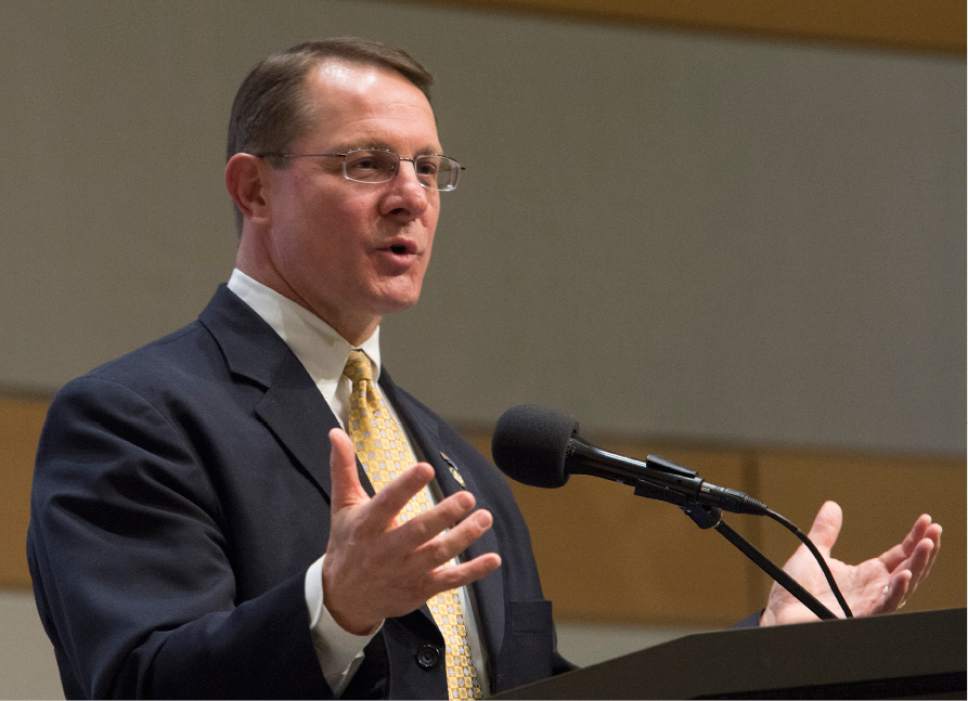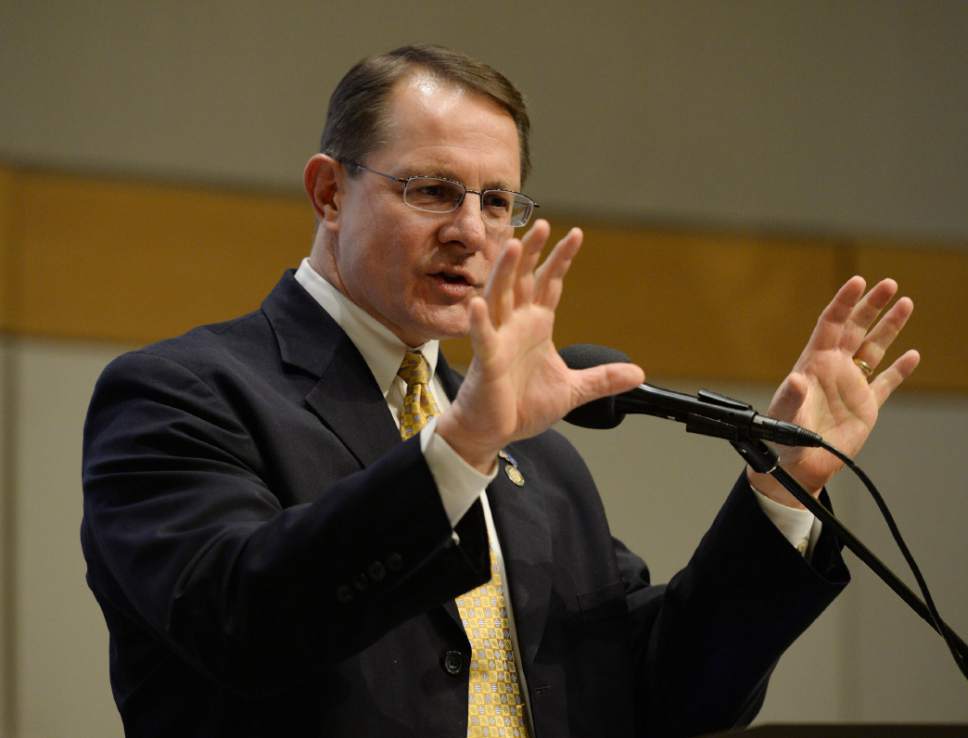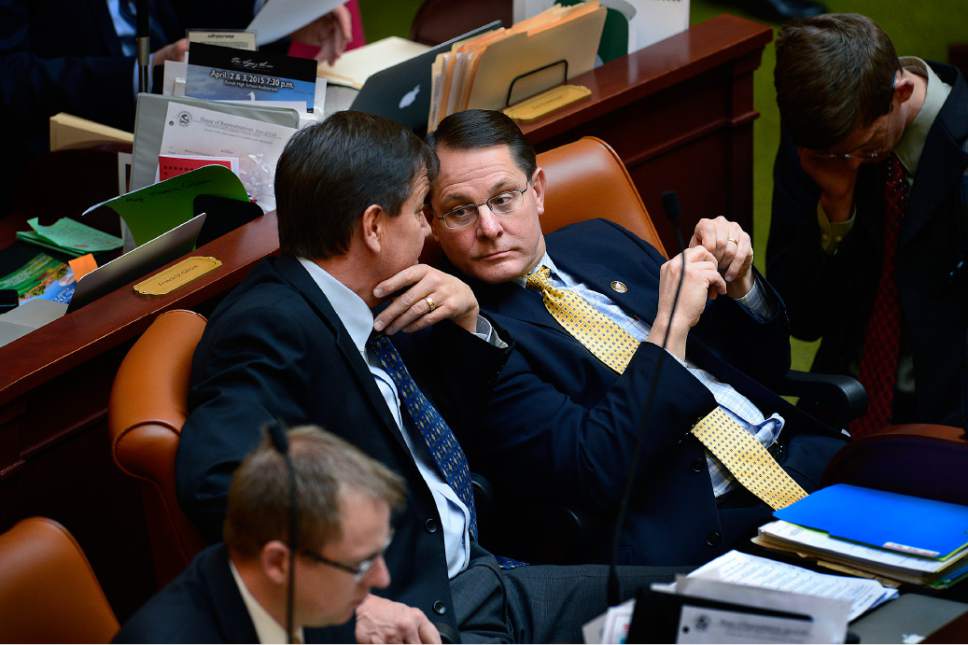This is an archived article that was published on sltrib.com in 2016, and information in the article may be outdated. It is provided only for personal research purposes and may not be reprinted.
State Rep. Ken Ivory was paid $135,000 last year for his work as president of the American Lands Council — a group dedicated to winning state ownership of federal lands — and his wife was paid another $18,000, according to the group's most recent tax filing.
Ivory's salary shot up by $40,000; the state representative estimated he spends about 60 hours a week working on issues for the American Lands Council.
The filing also shows that the group is growing, bringing in $336,524 in the 2014 tax year, an increase of almost 50 percent over 2013 and nearly as much as it raised in the prior two years combined.
The group primarily raises money by selling memberships to corporations or Western counties for between $5,000 and $25,000.
In addition to the salaries for the Ivorys, the group paid $32,000 in lobbying expenses, nearly $16,000 for advertising and just over $12,000 in travel.
The group's latest IRS filing, submitted last November, was obtained by the Center for Western Priorities, a Colorado-based environmental advocacy group, which said it was "astounding" that Ivory was paid nearly half of the money the group raised.
"I think this document shows that Representative Ivory is making money, and a lot of it, as is his wife," said Jessica Goad, advocacy director for the center. "The lands-seizure issue has become something of a pot of gold for the Ivory family."
Ivory, R-West Jordan, did not immediately respond to a request for comment.
Goad said Ivory has also used his position as a state legislator and a member of the Utah Commission on Stewardship of Public Lands to commission a taxpayer-funded legal analysis and public-relations contract that helps further the work of the American Lands Council that pays his salary.
"I think the 990 form points us directly to how he's pocketing this money from the American Lands Council and benefiting from stirring up this issue across the West," Goad said.
The American Lands Council has been the target of several formal ethics complaints filed in different states. In every instance so far, no action has been taken.
Last month, the Colorado Secretary of State declined to take action on a complaint by Colorado Ethics Watch, a watchdog group, that Ivory and his group had violated the state's lobbying law by advocating for passage of a bill to study the transfer of federal land in Colorado without registering as a lobbyist.
Colorado Deputy Secretary of State Suzanne Staiert concluded on Dec. 23 that the email expenditure was too minor "and thus did not implicate either the professional lobbyist registration or the prohibition in [statute] against employment of unregistered persons."
Colorado Ethics Watch's Luis Toro said he was disappointed to see the secretary of state "keep opening the door to more unregistered lobbying that violates Colorado's strict law requiring disclosure of all corporate spending to influence legislators."
In September, the Utah attorney general's office declined to pursue charges against Ivory after investigating a complaint contending that he and the American Lands Council were defrauding counties out of taxpayer money by promising them a lands-transfer scheme that is unconstitutional.
Investigators interviewed several county commissioners who said they had not been victims of fraud.
The audit concluded that Ivory had not violated Utah's lobbyist registration law because lawmakers are not required to register as lobbyists.
A similar complaint filed against the group in Montana was also dismissed.
Twitter: @RobertGehrke
Brian Maffly contributed to this report







